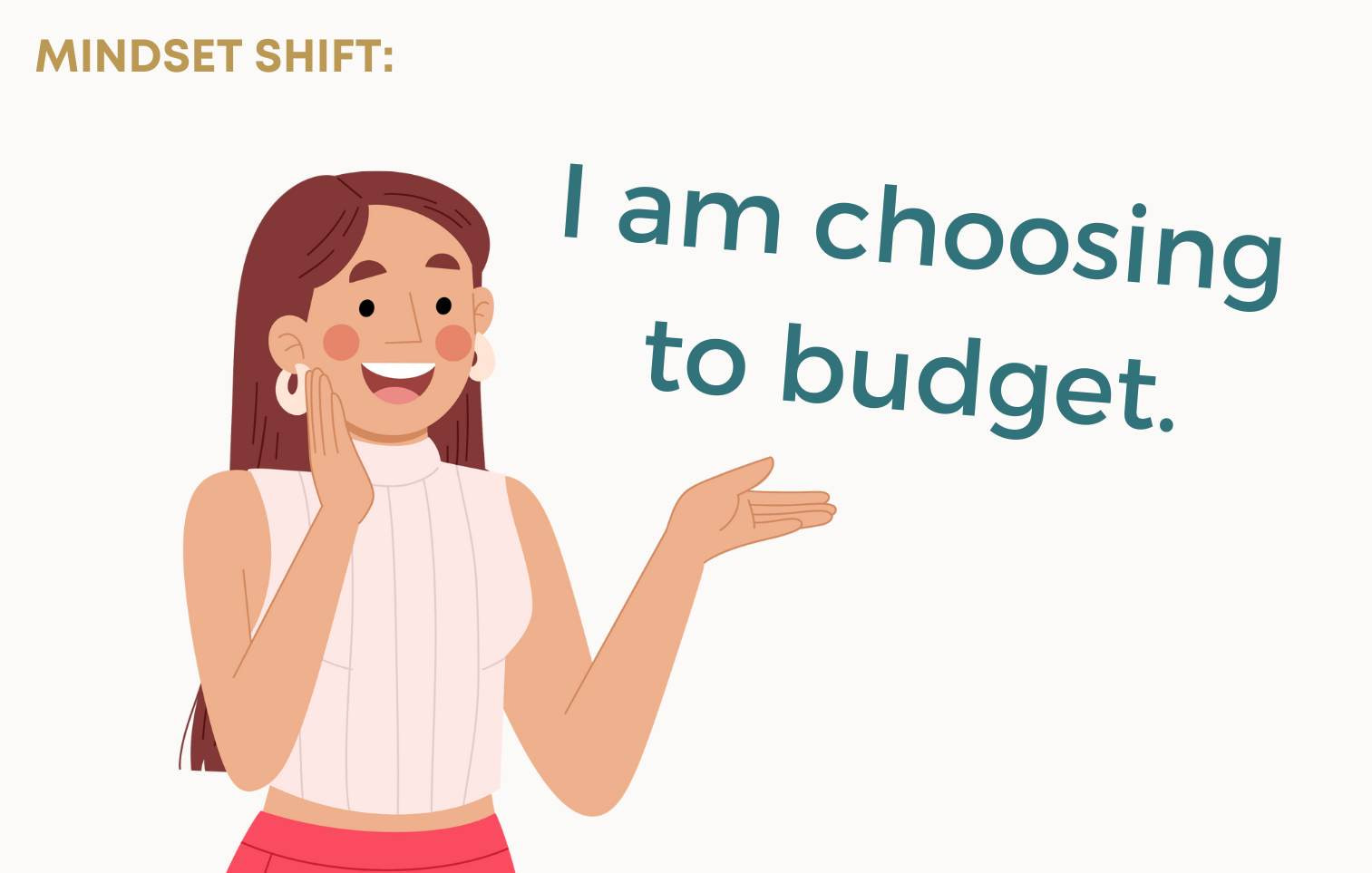Budgeting Doesn’t Have to Be So Hard
If you want to know “how to stick to a strict budget when you waste a lot of money,” this post is for you. I’ll cover that and more. Starting with why you shouldn’t be so restrictive and hard on yourself.
Written By Tiffany Woodfield, Financial Coach, TEP®, CRPC®, CIM®
Choosing to Budget vs. “I Have to Budget”
If you are like many people, someone telling you that “you need to budget” can instantly trigger you to feel guilty and wrong. (Even if that someone is yourself.)
Instead, say to yourself, “I am choosing to budget.”
Or if you need to change the word budget and say to yourself, “I am choosing to understand my money flow,” please do it. Anything that gets you into the right frame of mind will be useful.
If you want to learn “how to stick to a strict budget when you waste a lot of money,” this post is for you. But remember, the most important part of budgeting is to have the right mindset.

How do you survive on a strict budget?
To survive a strict budget, set realistic goals.
Do this even if you don’t reach your goals as quickly. If your goals are realistic, you are more likely to stick to them.
Next, you will want to use a practical system to set criteria and keep you on track. Some popular methods are the 50/30/20 rule, zero-based budgeting, or the envelope system. (+)
Educate yourself on the different options and choose the one that suits your lifestyle. Having an accountability partner, such as a friend or family member, can also help keep you on track and provide support.
How do I start budgeting if I’ve never done it before?
If you have never budgeted before, congratulations on taking the first step to understand how it starts!
Many people think budgeting is for people who don’t have enough money to cover their expenses. While this may be true, everyone benefits from budgeting.
The first step is to release any negative beliefs about why you need to budget and instead embrace the fact that budgeting gives you the insight and education to spend money on what you enjoy!

How do you deal with a budget overspend?
When you are budgeting, and you realize you are overspending, pause and follow these seven simple steps:
- Pause and acknowledge you overspent.
- Stop feeling guilty or judging yourself. This can cause other challenges and result in more overspending or giving up on the whole idea of budgeting.
- Choose to learn from this experience and ask yourself why you overspent. Did something happen that made you feel you needed a pick-me-up?
- Run the numbers, which means looking at how much you overspent and how it affects other areas in your budget. Did you catch the spending issue right away, or has it been many months? This is where you can recognize how important tracking your spending each month is.
- Create a plan to get back on track.
- Commit to checking in monthly. Be aware of the trap you fell into that caused you to overspend because it will likely come up again.
- Finally, give yourself some positive self-talk. For example, say, “ I am really proud of you for acknowledging you overspent. This is a big step in what budgeting is about. It is being conscious of what you spend on and shows you are learning and growing.”
What is the psychology behind overspending?
The most common reason people overspend is to fill a void and feel instant gratification.
Something shiny and new feels great, but this “fix” doesn’t last long, and if you can’t afford your latest purchase, it can lead to depression.
Is it better to use cash or credit cards when trying to budget?
A credit card makes it easy to overspend because it doesn’t “feel” like you are really spending.
This access to credit means you can spend more than you can realistically afford. If you continue to overspend, leave your credit card at home and only use cash. This is the basis of envelope budgeting.

How can I set and achieve long-term financial goals while budgeting?
Long-term, achievable financial goals are the building blocks of a budget, so clarify your why.
Ensure you know why you are budgeting and choosing to spend on one thing versus another. This is creating your purpose. When creating financial goals, ensure they are specific, realistic, and set to a time frame.
Separating into short-term and long-term goals can help keep you motivated and on track.
Quick Video: 3 Tips to Start Budgeting
You can use these three simple steps tips to get started budgeting so you can achieve financial freedom more quickly and easily! Make sure you click the subscribe button if you’re YouTube user so you get more of these videos in your feed.
Final Thoughts
Remember, a budget is an opportunity to feel in control of your financial situation so you can create the life you want.
It may not be easy to start, but it is worth it. When budgeting, most people feel an inner sense of confidence they didn’t expect. After all, it feels good to learn and understand your finances.
Get the Free Guide and Audio Meditation for Manifesting Your Dreams
Pop your email address in the form below to get my easy checklist and guide to manifesting and the guided audio meditation to help you get started.
You’ll also get one or two emails per month with the latest blog posts about abundance, wealth-building, manifesting, and creating a fulfilling life.
Related Articles on Budgeting
💎 Money Management Rules: 50 30 20, 7-Day Rule, and 20/10 Rule
💎 How To Successfully Budget Your Money
About the Author

TIFFANY WOODFIELD is a financial coach, cross-border expert, and the co-founder of SWAN Wealth based out of Kelowna, BC. As a TEP and associate portfolio manager, Tiffany has extensive experience working with successful professionals who want to leave a legacy and enjoy an adventurous, work-optional lifestyle. Tiffany combines extensive knowledge from her background as a financial professional with coaching and her passion for personal development to help her clients create a unique path that allows them to live their fullest potential. Tiffany has been a regular contributor to Bloomberg TV and has been interviewed by national and international publications, including the Globe and Mail and Barron’s.